An Interview with Skate Photographer Matt Price
Handling internet criticism, the similarities between skate and concert photography, and the dangers of getting too close to subjects.
You are reading ZERO CRED, the greatest newsletter in the world. Subscribe and have it sent right to your inbox. Totally free. (You can also upgrade to a paid subscription for only a couple bucks a month which helps a lot. I will even kick 50% off this week.)
Most of the interviews I’ve set up have stemmed from some previously existing relationship. Maybe I’ve been friendly with the subject for years or was long familiar with their work. Once in a while I’ll reach out to someone’s publicist to set something up. Matt Price is the only person who I physically accosted on the street. I was sitting there enjoying an overpriced bev with a friend outside a Hollywood coffee shop and saw him walk by. I stopped my conversation mid-sentence, ran up on him, and said something like “HEYSORRYTOBOTHERYOUBUTAREYOUMATTPRICE IFOLLOWYOUONINSTAGRAMJUSTWANTEDTOSAYIAMABIGFANOFYOURWORK.” And his response, if I remember correctly, was: “Huh?”
I’d been introduced to Matt’s photography through our mutual friend, Sean Bonnette, who we know from different avenues. I know Sean via his band, AJJ, and Matt knows him from growing up skateboarding in Arizona. I started following Matt’s work at Sean’s suggestion and loved it. Skateboard photography is pretty well trodden territory. The medium is decades old and it has arguably reached the limits of its artistic growth. But every once in a while I’ll spot a photo that proves there’s still some fresh ground left to uncover. Matt’s work has done that several times over.
His most well known photo was almost a fluke. He put his camera face up in a trash can, poked the shutter button with a stick, and out came this:
But beyond that famous shot, Matt has a larger body of work that’s a bit more unconventional. He loves abstraction, and prefers energy over technical style. We recently had a long chat at a Hollywood coffee shop (yes, the same one where I accosted him) and talked about everything from handling internet theft, the similarities between concert and skate photography, and the impact of his semi-regular publication, Golden Hour.
Do you think you would have ever become interested in photography if you had not found skateboarding?
Matt Price: I don’t want to say no, but [photography] didn’t make sense to me. I took a photo class in high school. They would show me Ansel Adams and I’d be like, “Who fucking cares?” They were like, “This is how you calculate your f-stops and this is how shutter speeds work.” And I was like, “Don't care, don't care.” I didn't care until I heard someone explain it like, “This is the shutter speed you need to shoot a skate photo at.” Teaching in general is about finding a way to relate the material.
Right, if Ansel Adams had documented 360 flips, you’d have been interested.
Yeah, all day. [Skateboarding] was the only thing in the world I cared about, and thank God there was a way to funnel some photography knowledge through that.
I feel like when I was a kid, I used to gawk at skateboard magazines without much consideration for the art of it. When did you start thinking about the people behind the camera and the gear and the technical aspects of it?
When I was 16 I started noticing certain photos I liked, and I would read the names. In the corner there was always the little photo credit. I just knew that some photos I liked better than others. The names started burning themselves into my brain, but for the first year of doing that, it didn't even register that they were actual humans and photographers. They were just a weird name in the corner. There's a photographer called Skin Phillips and the photos just said Skin. So for the first year of looking at TransWorld, I was just like, “Huh, it's weird that some of these photos just say Skin on them.”
Atiba [Jefferson] was king at that point. I was looking for Atiba photos all the time. If Atiba shot the article, it was usually going to be the article I really wanted to see. I started that hero worship of these guys, because out of my skate crew, I was the worst at skating. I think I was a smart enough kid to see the writing on the wall. There’s that quote about the punk scene, it might’ve been from Henry Rollins, but it was like: you can’t be a bystander in the culture; you have to be an active participant. So if you were in the punk world, you either had to play in a band, you had to go on tour with the band and sell merch, you had to make zines, something. You had to contribute to skating in the exact same way. It felt like there's no world where you could be just a bystander or just a shitty skater in the crew and that's all you contributed. So I knew immediately I had to pick up the camera.
Was there a specific photo that captured what you wanted to convey with your photography?
There was a handful. In that era, there were some photos that Jon Humphries shot that always stood out to me. There was this doubles photo I always loved, of Lance Mountain and Ray Barbee on these full pipes, where it was half performance art, half photography. They timed this doubles photo and it made these really cool geometric shapes. That photo always stood out to me. And then, kind of more in relation to what I do now, this photo shot by O—Otis Bartholomew—a legendary skate photographer. He shot this photo of Jason Lee doing a one-foot over this fire hydrant. That's the best skate photo in history. It took me years to get to that point, but about a year before he passed, I remember seeing it again one day and thinking that it checks every box for the most perfect skate photo of all time.
Would you rather do what you do now in the pre-internet days?
No. Fuck no. So many people who are just a few years older than me are so much more bitter and jaded. Because of the time that I came up in, I shot film for the first four years. I shot film, scanned it, and put it on the internet. There was a website called skateboardphotography.com, and I didn't know anyone in the world who shot skate photos, so I was just learning from that site—what gear I should get, talking to people on there, and posting my skate photos in the critique section and getting destroyed. It was such a mean culture of like, fucking incels. [Laughs] It's skaters. Skaters can be pretty negative. But I just wanted to learn and get better and show those guys that I could shoot a photo. That was hugely instrumental, so I'm really glad that I came up in that way, because what happens now with social media and the internet, I'm totally primed for. Like, when I was 16, I was shooting a photo and putting it on the internet and letting people rip it apart. When I see new people get a following online now and go through the pains of people talking shit and anonymous bullshit, I'm like, “Oh man, I'm so glad I went through that in my teen years.”
What do you think is the future of skate photography as a profession?
You have to wear a lot of hats. Like, I'll do whatever you ask. If you say, “Hey, you're a photographer, but we want you to shoot video,” I'll shoot video. If you say, “Hey, you're a photographer, but we want you to manage the team on the road,” I'll manage the team on the road. “You're a photographer but we need you to make YouTube videos and star in them.” I did that for eight years for CCS. At first it hurt really bad. It was not what I ever wanted to do. But to me, the future of skate photographer is to do a bunch of shit that isn't skate photography and then if you're lucky you can shoot skate.
How do you feel about your photos being reposted on big accounts and just crediting you? I know that’s just the way the internet works, but that seems like intellectual property theft to me.
It doesn't fuck with me as much, because so early on in my photo journey or whatever, I was just putting stuff on the internet, and in my head, once you put it on the internet, it's just out there. You still own it, but I guess I'm not as precious about it because I didn't come from that era. I don't even know how usage rights work for photoshoots. A lot of OG guys would get really mad about that. They'd be like, “You're ruining everything!” And I'm like, “Sorry, man. Then teach me, because I don't fucking know.”
I have never really felt like I own the work as much as it's more the skater’s thing than my thing. If I'm shooting a person, it's just as much theirs as mine, if not more. Once you make the decision to put it on the internet, to me, it's just gone and you have to expect that it's gonna get stolen. Also, I don't have the energy to take recourse. Some people are really good at that. Some people have teams and they check things all the time and they're willing to get into fights and send invoices.
But I feel like that mentality is what the internet wants us to believe, to just not give a fuck about things we own. Whereas 20 years ago if you found out about a magazine just running your photo without asking, you'd be like, “Hey, where's my paycheck?” I feel like this defeatist mentality about our art is almost a product of what the internet has conditioned us to accept.
That's fair. I think I'm just tired. I saw the writing on the wall real fast. I think I also swallowed that skate photographer stopped being a full-time job at some point, for me at least, so I got a marketing job. I worked at CCS for eight years because I just saw the writing on the wall. I used to sit on a photo and sell it to a brand for a thousand bucks. Now they just take it and use it and that's just what it is. So my mentality is less like “I’ve got to fight for this” and more like “I'm just gonna get another fucking job because I'm not gonna win.” I think that these brands are always gonna figure out how to get stuff for less money. They're always gonna win, especially the big ones.
For me, I've always put my relationships before everything else, and just tried to maintain my relationships and then hopefully get more work. And it's worked for me. Rather than fight about something now, my hope is that someone throws you a bone later. And from my experience, that's been pretty true. And I don't even know who I'm fighting. I guess that's the other thing. Who am I fighting? Am I fighting the brand, the social media guy? Capitalism as a whole, the internet? The fight's too big. I feel like there's like a million people around me and I'm one guy with a fucking sword and a shield. And the thing is, what, am I gonna chase someone down for 300 bucks?
Well that’s what’s so frustrating. The cavalier internet theft is so rampant that people accept that it costs less to argue than to do something about it.
Yeah, I'm already stressed out. I live in a fucking world that is not built for me. It's hard. [Laughs] I fucking feel stressed all the time and, what, do I need more stress? Also, skateboarding for the first ten years was chasing down $300 checks for, sometimes, a fucking year. Sometimes I had to invoice a brand six times over the course of a year for like $500. And I'm not a bridge burner, but I am a grudge holder. I'll remember if people treat me bad. I never forget. I remember every person who's ever fucking done anything bad to me, dude. It's a bad trait. It's so unhealthy.
I feel like the internet has also increased the progressive skill level for basically everything. Like, the impossible became possible in a weird way. You can watch a 13-year-old guitarist in Japan on Youtube, just absolutely shredding. Same with skateboarding, where kids are doing these previously unheard of tricks. Has skate photography changed a lot over those years?
For sure. I feel like people can shoot a good photo so fast now. There's a lot of people that can quickly replicate something now, but it might not be talent. It might be just learning the skill that much faster. What’s happening in skating is that there’s way more people who have the skills to replicate something they see really quickly and add onto it, and figure out these things that are really technically difficult. But everyone gets numb to that so quick, I think. You see it and it’s cool, but it doesn't move you. It doesn't get you anywhere.
Because it's skill versus art. They’re taking a form and replicating it to the most extreme degree. But it’s not a vision.
It’s too focused. You're looking at one linear path to progression. You're not zooming out and looking at the whole spot and thinking about utilizing it in an interesting way, with these little things that really make skating magical. Not everyone can do that.
Some people just have that X factor that's not necessarily related to skill or technical ability. It's just something about you that draws people in.
Yeah, and the best is when those people don't give a fuck about any of that shit. Those are the people that need to be guarded and protected at all costs, when the most amazing skater you've ever seen is just not willing to play the game. My friend Marky in San Diego, he's one of my favorite skaters on Earth. He is magical. He's regarded by tons of pros and sponsored skaters as one of the sickest skaters but he's never had a real skate career. He's always worked a job and in between working his job, he films these gnarly video parts and he goes out and eats shit he just fucking skates every day. He’s a treasure. In my perfect world, he's the one who should make six figures to skateboard.
The times you’ve shot bands or live music, is there much overlap between that and how you shoot skateboarding?
For sure. Shooting music is kind of like the best parts of shooting skating, because sometimes with skating you have a specific thing you want to shoot. You have a goal. There's a trick and you're setting up lighting specifically for that trick. But I really prefer to let someone just try a trick a lot of times, because it gives me a chance to just run around and play. I get to try this angle and try that angle and move this flash and move that flash. Music is the same thing. You're always waiting for this one special moment. When I'm shooting music, it reminds me of shooting a really high energy skate session where lots of people are trying different tricks, because you're just constantly on the lookout for moments and you're trying to run over here and get over there. You're just snapping away and that is my favorite way to work, because it's just complete mayhem and chaos and you don't even know what you got until afterwards.
I shot that Thrasher Deathmatch thing last year for Converse. That was the first time I was ever even at a hardcore show. I'm like the least hardcore guy on Earth. And I was in the pit when End It and Trash Talk played. I didn't even really think about what I was doing. I was just up front to get photos and then they started playing and I was just getting my ass kicked. I did not realize this, but when you're in that crowd and they see you with a camera, they want to fuck you up. Dudes were trying to kick my camera and shit.
Which you’re used to from shooting kickflips and stuff.
Yeah, it didn't really faze me. Until my glasses got knocked off and I realized, “Oh, I'm not really prepared for this situation.” It was scary for me because it was gnarly, but when you focus the fear into shooting, it's kind of like you forget. Then all of a sudden someone kicks you in the side of the head and you're reminded. It was really fun and hectic. I like blurry photos, I like out of focus shit, I like stuff that just feels rather than looks, you know?
So what did you learn from shooting your first real hardcore show?
That I need either goggles or some Croakies to hold my glasses on, because my glasses are really important. If I lose them, I'm fucked. And I think I would really want to have a rapport with the band, or maybe go up to someone ahead of time to introduce myself and say, “Hey, I'm going to be shooting. Do you care if I get kind of close?” Just have that conversation ahead of time.
One time I shot Murder City Devils at the Troubadour. I got pretty close and got some fisheye photos. I could tell that dude Spencer [Moody] was kind of annoyed. He kept glaring at me out of the side of his eye and I really quickly backed off. That’s fair. Then, literally in that same exact song, someone threw a beer at him and he just grabbed the mic stand, threw it at the guy, jumped off stage, and beat the shit out of him. My friend Morgan shot a photo of it that was on the cover of What Youth, a surf culture magazine.

How do you size up any situation you walk into as a photographer? Like, how does your eye see the world?
It's such a feeling. It's: do I hate this or do I like this? When I'm here in Hollywood, I look around and I hate everything I see. There's nothing here I want to take a picture of. It's the opposite of inspirational, which is a bummer. I'm not that photographer who carries his camera at all times. I'm not Ed Templeton. Maybe it’s an ADD thing and that's why skate tricks are so exciting for me. That's why I want to shoot someone dunking a basketball or swinging a golf club or boxing. I love this motion aspect of things, so when I see motion, that's usually what gets me going. So maybe I’m scanning for motion, is a long winded way of answering the question.
Tell me about Golden Hour.
It's a home for ideas. I basically wanted to marry the idea of a skate magazine and a photo book. The format is 60 pages. It's a singular story, each issue. The goal was to do one a year. Now I'm averaging like one every other year. It's kind of just my friend Andrew and I. If I have a story or want to go deeper on a story—like, maybe something that was a magazine article that was ten pages but this took us two years to shoot and I have 60 pages worth of stuff. Golden Hour only happens when there's an idea.
What have you learned from putting something with that kind of nontraditional angle on skateboarding out and the audience for it?
I can count on around 500 people that really, really appreciate this thing. It's a lot of skate photographers, it's a lot of deep skate nerds, it's writers, it's people that appreciate print media. It's definitely a niche, but it feels really good to make something for a small group of people and really not give a shit about whether it works or not. We usually get one sponsor to pay for the whole thing, so it's covered. There's no monetary risk, really.
I hate ever feeling like I inspire people to do things because it’s so corny to be that person, but I did have a ton of people reach out to ask where I printed it and how I did it. And I gave them the exact formula. A couple years later, there's five small mags in the US, all people that have talked to me about doing it. I always toe the line where you don't want to be the cocky asshole but you also want to not be blind to what's happening. I know that making that magazine helped inspire some really cool magazines that exist now, and I’m stoked on that.
How far ahead in your career do you typically think?
I don't know if I'm thinking ahead, I'm just thinking about what's next. I just try to stay in the moment. But I think if I make it to 60, I want to be on a remote beach or a forest somewhere, shooting like moss or something, you know? My dream is that when I'm really old I just get to focus on some asinine nothing, the minutiae of some goofy little thing that I'm into at the time and just shoot that. Day in, day out, work on a project that four people in the world will care about.
This interview has been edited for length and clarity. All photos by Matt Price, except the top photo which was taken by me at the direction of Matt Price. More of Matt’s work is available on his website.
MORE INTERVIEWS WITH MORE PEOPLE
Follow me: Instagram | Threads | Bluesky | Twitter | Website
Real life: PO Box 11352, Glendale, CA 91226
Get my book SELLOUT at Bookshop, Barnes & Noble, or Amazon.


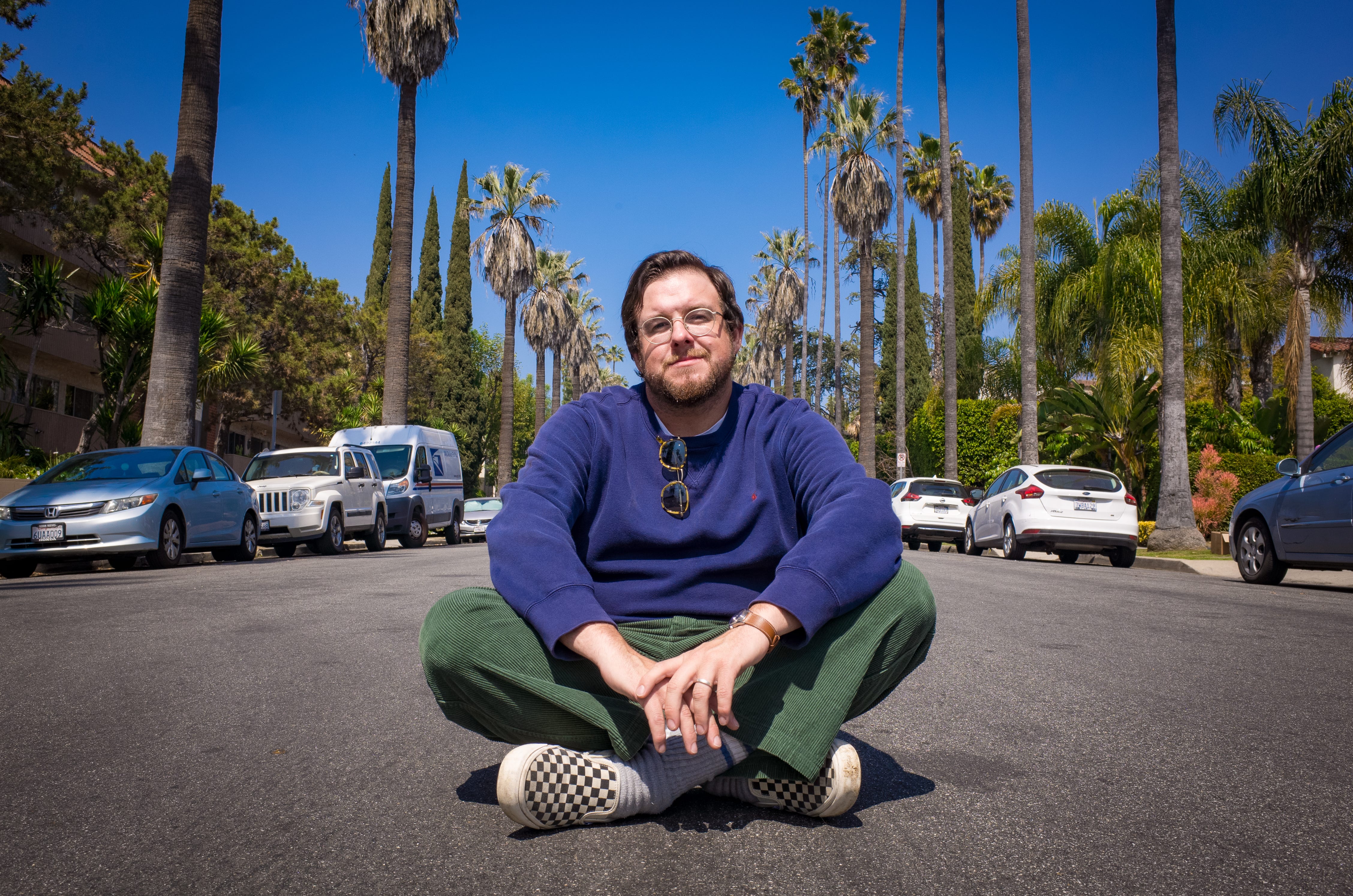
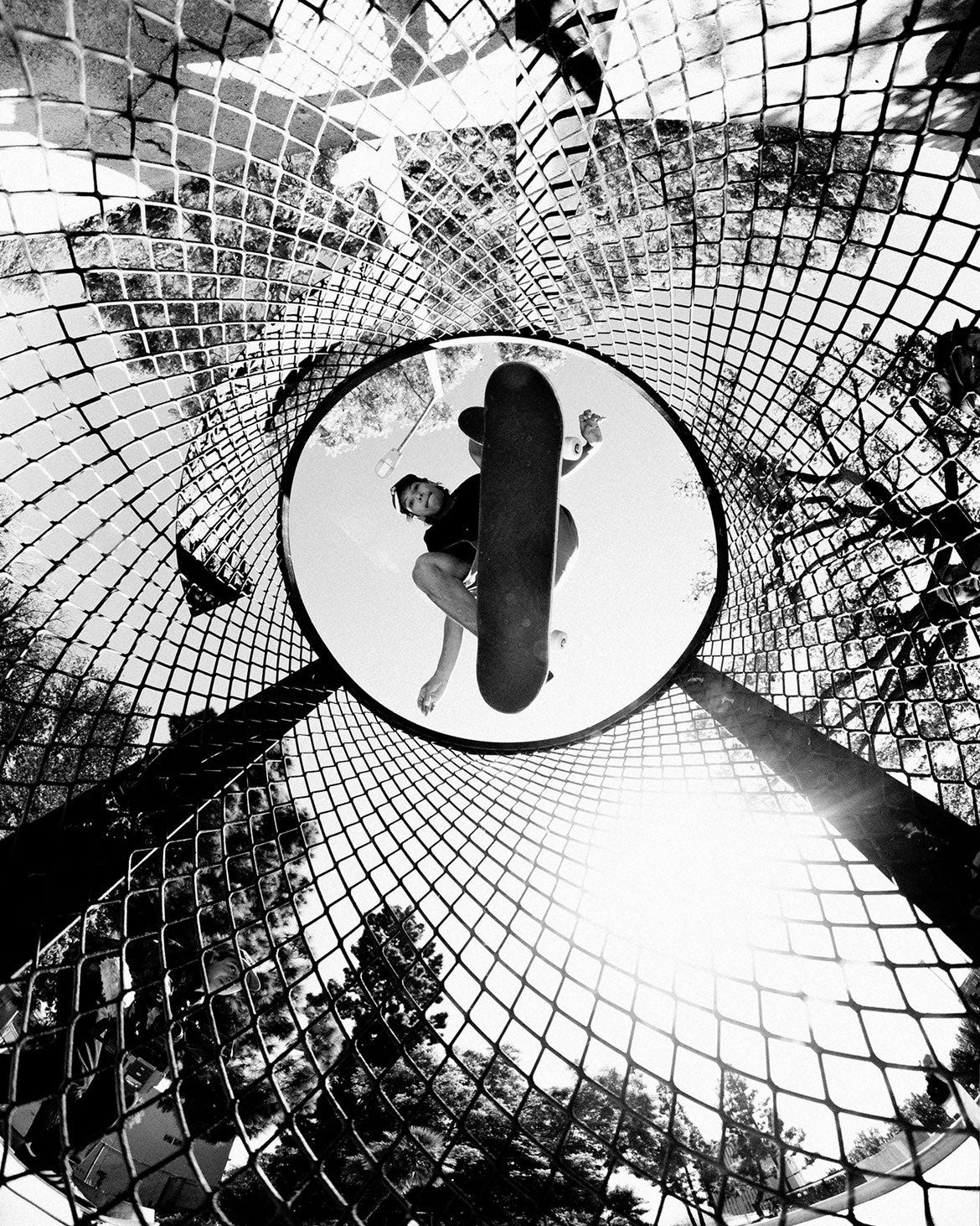



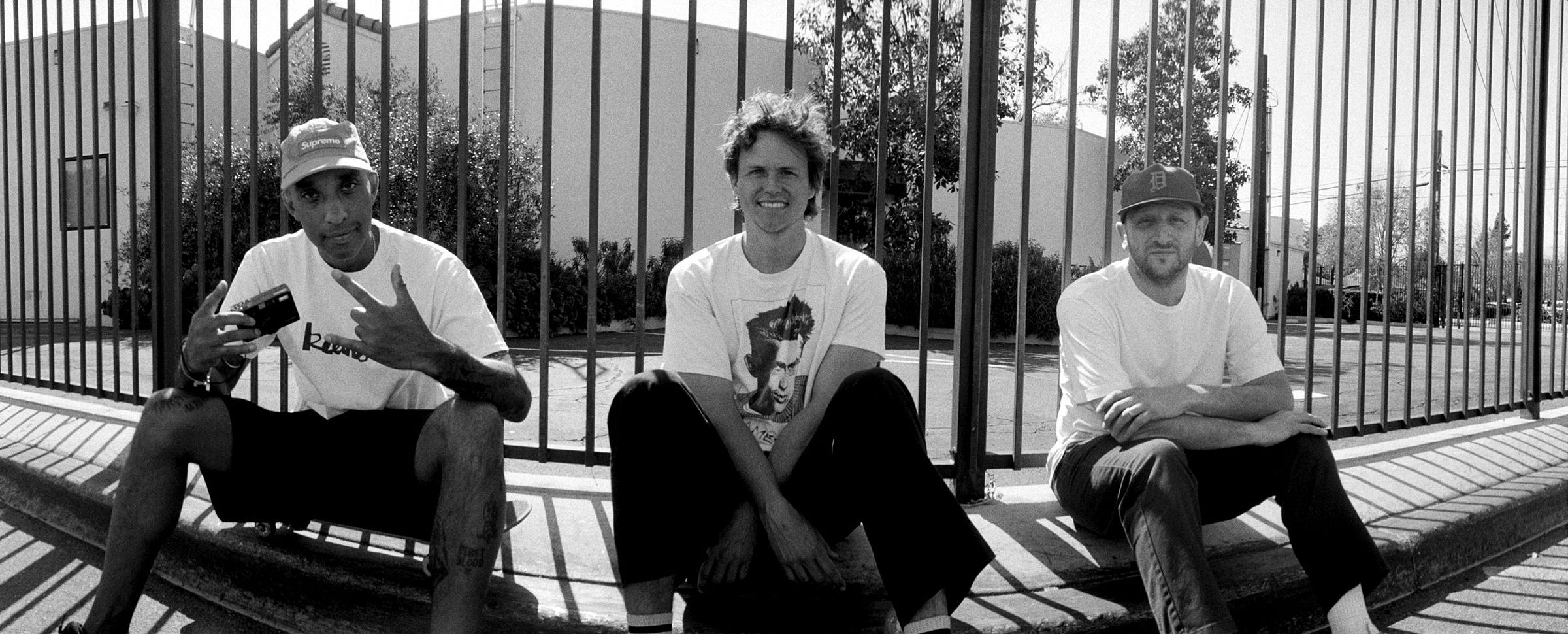

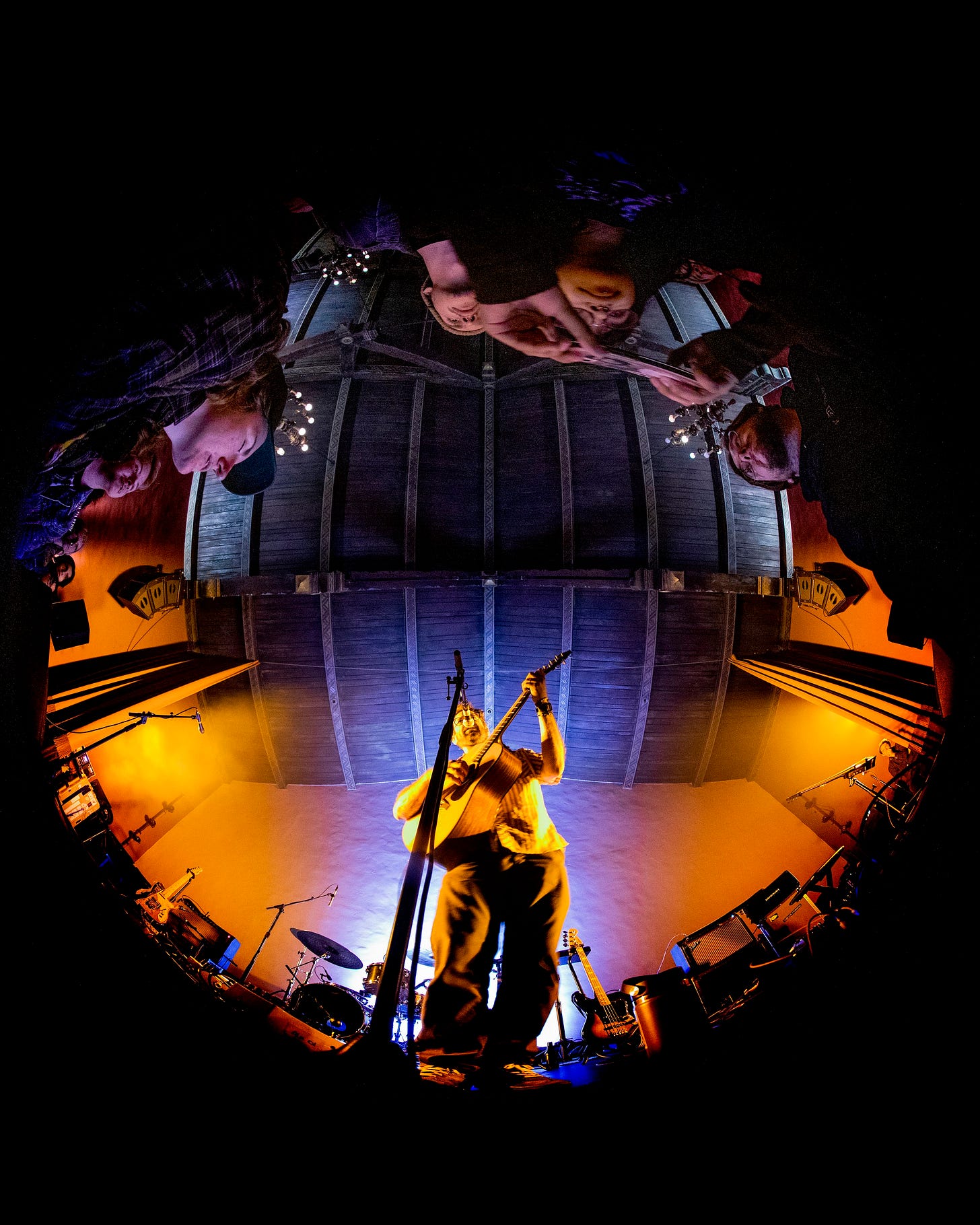


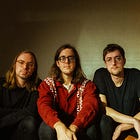
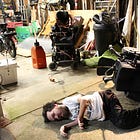
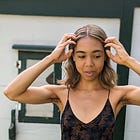
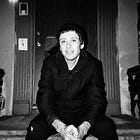
This was a very small part of the article, but could I ask for Hollywood coffee shop recommendations? I'll be in the area for about a week pretty soon, and am looking for non-starbucks options. Thanks!